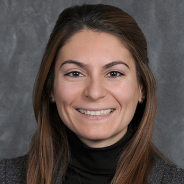Workshop Program
Accepted Papers
- Explainable Biomedical Recommendations via Reinforcement Learning Reasoning on Knowledge Graphs.
Gavin Edwards, Sebastian Nilsson, Benedek Rozemberczki and Eliseo Papa - Biological Insights Knowledge Graph: an Integrated Knowledge Graph to Support Drug Development.
David Geleta, Andriy Nikolov, Gavin Edwards, Anna Gogleva, Richard Jackson, Erik Jansson, Andrej Lamov, Sebastian Nilsson, Marina Pettersson, Vladimir Poroshin, Benedek Rozemberczki, Timothy Scrivener, Michael Ughetto and Eliseo Papa
***Best Paper Award*** - Simplicial Complex Representation Learning.
Mustafa Hajij, Ghada Zamzmi, Theodore Papamarkou, Vasileios Maroulas and Xuanting Cai - Lightweight Compositional Embeddings for Incremental Streaming Recommendation.
Mengyue Hang, Tobias Schnabel, Longqi Yang and Jennifer Neville - Providing Node-level Local Explanation for noded2vec through Reinforcement Learning.
Hyunju Kang and Hogun Park - Time Evolving Spatio0Temporal Hypergraph for Stock Forecasting.
Ramit Sawhney, Shivam Agarwal, Megh Thakkar, Vineet Malhotra and Sudheer Chava - Adversarial Generation of Multi-View Tensor Graphs: A Preliminary Model and Encouraging Results.
William Shiao, Benjamin A. Miller, Kevin Chan, Paul Yu, Tina Eliassi-Rad and Evangelos E. Papalexakis - Two-view Graph Neural Networks for Knowledge Graph Completion.
Vinh Tong, Dai Quoc Nguyen, Dinh Phung and Dat Quoc Nguyen - Imbalanced Graph Classification via Graph-of-Graph Neural Networks.
Yu Wang, Yuying Zhao, Neil Shah and Tyler Derr
Workshop Program. (Local time MST in Phoenix, AZ at WSDM'22).
Morning Session (MST)
08:30 - 08:40 Welcome and Opening Remarks08:40 - 09:15 Keynote - Yinglong Xia of Meta AI
09:15 - 09:50 Keynote - Neil Shah of Snap Inc.
09:50 - 10:25 Keynote - Xin Luna Dong of Meta
10:25 - 10:40 Coffee break/Social Networking
10:40 - 11:15 Keynote - Jingrui He of UIUC
11:15 - 11:50 Keynote - Dan McCreary of Optum
11:50 - 11:55 Short break
11:55 - 12:30 Keynote - Jay Yu of TigerGraph
Lunch Break (12:30 - 13:30)
Afternoon Session (MST)
13:30 - 14:05 Keynote - Leman Akoglu of CMU
14:05 - 14:40 Keynote - Meng Jiang of University of Notre Dame
14:40 - 15:00 Coffee break/Social Networking
15:00 - 15:35 Keynote - Yizhou Sun of UCLA
15:35 - 15:55 Future Directions Panel (Keynote Speakers)
15:55 - 16:00 Short break
16:00 - 16:25 Contributed Research Lightning Talks
16:25 - 16:30 Best Paper Award Ceremony & Final Remarks
16:30 - 17:00 Contributed Research Poster Session
Keynote Speakers
Graph-level Embedding:
Speed, Interpretation, Expressiveness

Leman Akoglu
Dean's Associate Professor
CMU
Combining Representation Learning
and Logical Rule Reasoning for
Knowledge Graph Inference

Yizhou Sun
Associate Professor
UCLA














